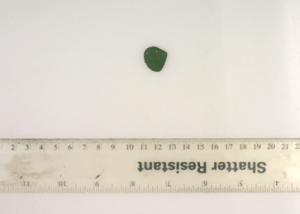Helena Ripley: Finding Joy in Lab work
Lab work is part of my PhD and, as with all aspects of PhDs it has its ups and downs. Some of the stages have been stressful, tedious and exhausting. But working in the lab also allows me to network with fellow students, takes me out of my comfort zone, and changes the pace and nature of my work.
A benefit of lab work is that it promotes collaboration. Although protocols for experiments (whether from journal articles or lab managers) try to make the methods as straightforward as possible; it’s never the same as talking to someone who has already carried out the process. Early on in my project I helped a fellow PhD student with lab work that I knew I would eventually be carrying out myself. As well as giving me some vital hands on experience, it also helped me to get to know other people in my research group. My lab work has involved growing plants in a greenhouse, these need watering almost every day and I’m not always around to do this. My first port of call for people to look after my plants when I’m away are my fellow greenhouse users, some of whom I don’t cross paths with often. Although I found it a bit awkward at first to ask people to help me out, everyone I’ve approached has been willing to assist me and it’s been a good starting point for getting to know them better.

I’ve had to step outside of my comfort zone to do my lab work. From asking relative strangers for favours as mentioned above, or constantly asking the same group of people questions, relying on others so much isn’t something I enjoy but it has been necessary. Starting a new experiment is always a bit daunting, there is a lot to learn. There are many steps before the experiment can be started: finding and understanding the methods, filling out forms, receiving necessary training, gathering or booking equipment. And until the method becomes familiar it’s hard to know how difficult or time consuming it will be. These can feel like a lot of hurdles to overcome. Simple methods can become very long winded, when I measured leaf area I was planning to put my leaves through a machine that would give me the area. However, this machine wasn’t working so instead I took individual photographs of each 550 leaves (like the one below) and used software to find the area. But I have found everyone in the labs very friendly and willing to help. It feels like I’ve made a lot of progress when others come to me with questions about lab work, especially when I know the answer!

Apart from admin the main part of my time in the office is spent reading and writing. Once I’ve finished my lab work I will also be doing statistical analysis. There are aspects of lab work that I hope to transfer to the office-based part of my PhD. Lab work is often time sensitive due to the booking period of equipment or the need to analyse plants at a particular stage of their growth. This makes me procrastinate less and work in larger blocks of time than when I’m in an office. When I am analysing my plants, the work is quite clearly divided by the number of plants I am working on. This makes it easier to allocate my time, for example, deciding to take a break after every five plants. Office work tends to be much more open ended and can sometimes produce little noticeable output, which lends itself to procrastination. However, I hope to become more aware of needing frequent breaks and structuring my day more efficiently. I also seem to approach problems that arise in the lab in a more flexible and creative manner than in the office. This may be in part because of the time pressure but also the nature of the work. One experiment involved making an origami basket, while another had me shopping for wire cutters and duct tape to fashion infiltration cylinders. While office work is unlikely to ever involve such obvious creativity, I hope to take that mindset to more of the challenges I encounter there.


